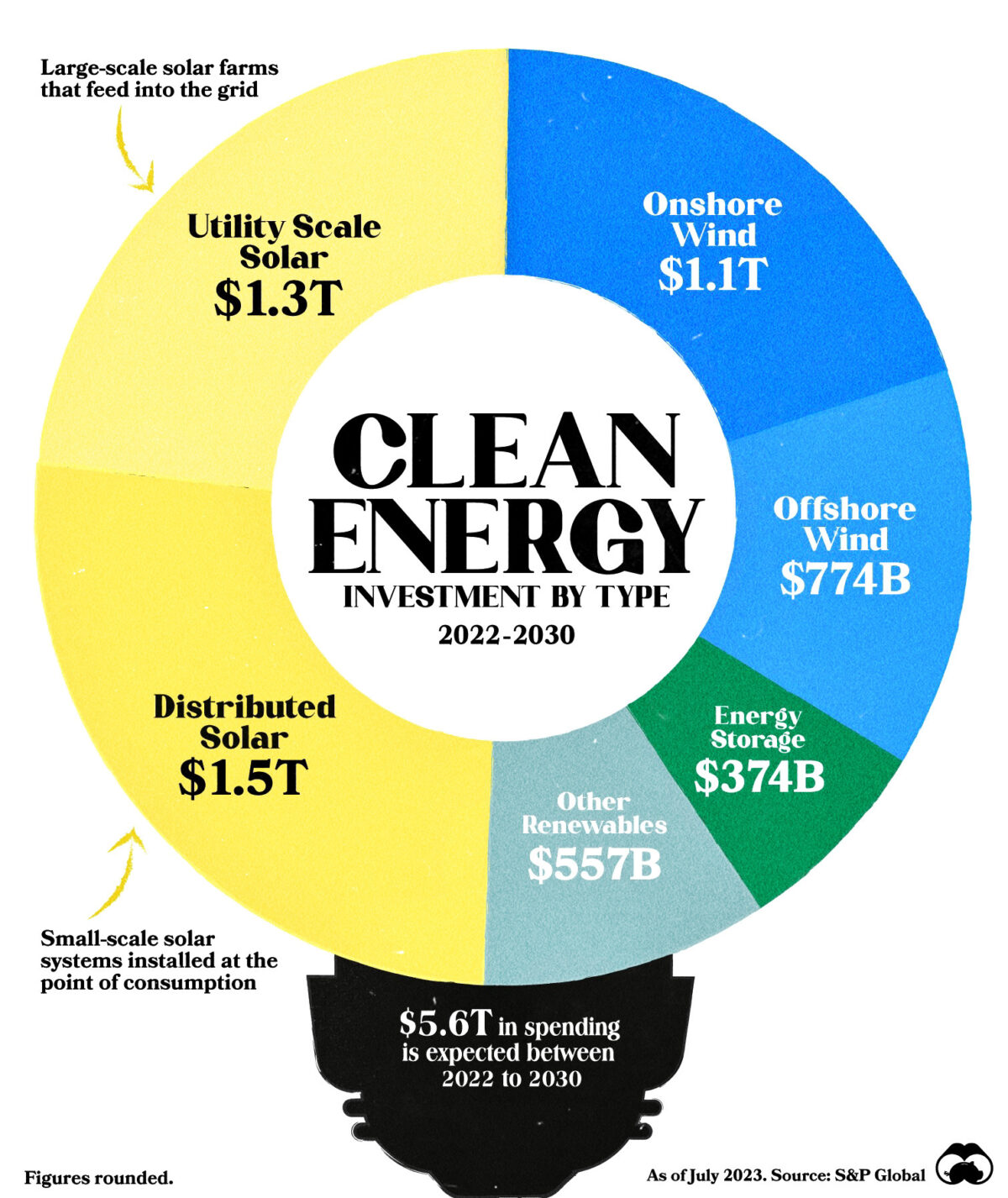
Visualized: Global Clean Energy Spending Forecasts (2022-2030)

Global clean energy funding is projected to total $5.6 trillion between 2022 and 20230, driven by the need for alternative sources to coal, oil, and other carbon-intensive energy sources.
While this investment is essential for mitigating climate change, according to S&P Global, climate funding will still fall short of reaching the goals laid out in the Paris Agreement.
This graphic shows where this investment is projected to be allocated to over the next decade, based on forecasts from S&P Global.
Global Clean Energy Investment, by Type
By 2030, solar energy is forecast to see $2.8 trillion in global clean energy investment, the most across renewable energy sources.
| Type | Global Investment (2022-2030P) |
Share of Investment |
| Distributed Solar | $1.5T | 26% |
| Utility Scale Solar | $1.3T | 23% |
| Onshore Wind | $1.1T | 20% |
| Offshore Wind | $774.2B | 14% |
| Energy Storage | $373.6B | 7% |
| Other Renewables | $557.1B | 10% |
This investment in solar accounts for nearly half of the global total, with 26% going to smaller-scale “distributed” solar systems, such as rooftop solar panels across households, businesses, and other public institutions. Comparatively, utility-scale solar is estimated to see 23% of incoming funding by 2030.
Wind power, falling next in line, is projected to attract the next largest slices of investment, totaling $1.9 trillion. More of the investment is slated to go onshore wind projects (20%), while offshore wind—which generates power on wind farms built across bodies of water—is set to receive $774.2 billion or 14% of estimated funds.
Both the U.S. and the European Union have created incentives for offshore-wind companies, including new tax credits from the Treasury Department.
Overall, current S&P Global forecasts expect $700 billion per year of renewable energy investment through 2050. However, under a net-zero model, an annual figure of $1.4 trillion would be needed to reach zero emissions by 2050.
More News
Importance of Governance Pillar in your ESG Journey
Governance is the backbone of ESG, often overlooked but essential for ensuring t...
ESG Ratings for Indian SMEs: A Path to Growth, Investment and Competitive Advantage
This blog explores why ESG ratings are becoming essential for Indian MSMEs, high...
Redefining Waste: How the Circular Economy Transforms Trash into Value
The circular economy transforms waste into valuable resources by shifting away f...
Sustainable Investing: The Future of Finance and Impact
Sustainable investing integrates environmental, social, and governance (ESG) fac...
Understanding ESG Ratings
ESG ratings assess a company's environmental, social, and governance performance...


